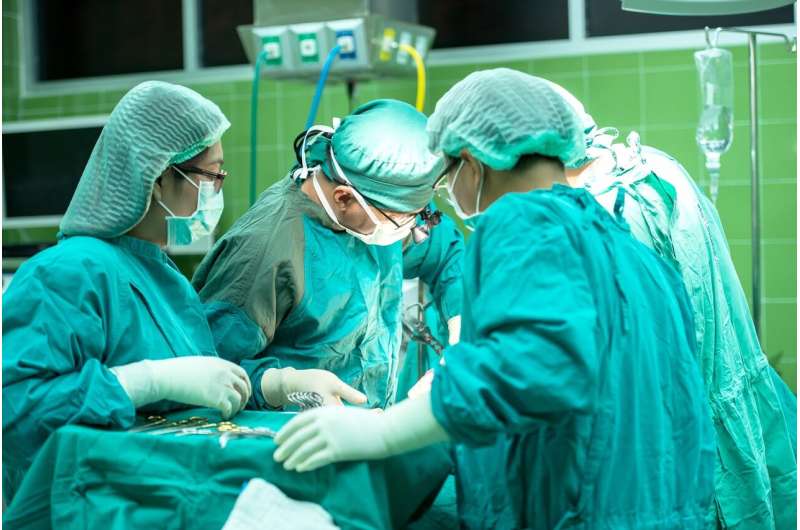Credit: CC0 Public Domain
Assessing preoperative levels of N-terminal pro-B-type natriuretic peptide (NT-proBNP), a biomarker of heart stress and structural changes, may improve risk prediction beyond the clinical risk score in patients having noncardiac surgery. Findings from a cohort study are published in Annals of Internal Medicine.
Globally, more than 200 million adults have major noncardiac surgery annually and more than 10 percent have major cardiac complications within the first 30 days, resulting in death, disability, prolonged hospitalization, or increased health care expenditure. Several guidelines recommend using the Revised Cardiac Risk Index (RCRI) to predict perioperative cardiac risk. Although the RCRI is easy to use, its accuracy in predicting major perioperative cardiovascular complications is limited. Preliminary evidence suggests that NT-proBNP measurement may improve perioperative cardiovascular risk prediction.
Researchers from McMaster University, Hamilton General Hospital planned a substudy of the VISION (Vascular Events in Noncardiac Surgery Patients Cohort Evaluation) study to determine whether preoperative NT-proBNP had additional predictive value beyond the RCRI for the composite of vascular death and myocardial injury within 30 days after noncardiac surgery. The substudy included 10,402 patents at 16 hospitals in 9 countries and all patients had NT-pro-BNP levels measured before surgery and troponin T levels measured daily for up to 3 days after surgery. The researchers found that preoperative NT-proBNP concentrations were independently associated with the occurrence of vascular death or myocardial injury at 30 days after surgery. Preoperative NT-proBNP thresholds in addition to the RCRI substantially improved discrimination of patients and perioperative risk stratification and also predicted the risk for secondary outcomes.
More information:
Abstract: http://annals.org/aim/article/doi/10.7326/M19-2501
Editorial: http://annals.org/aim/article/doi/10.7326/M19-3718
Journal information: Annals of Internal Medicine
Provided by American College of Physicians






















